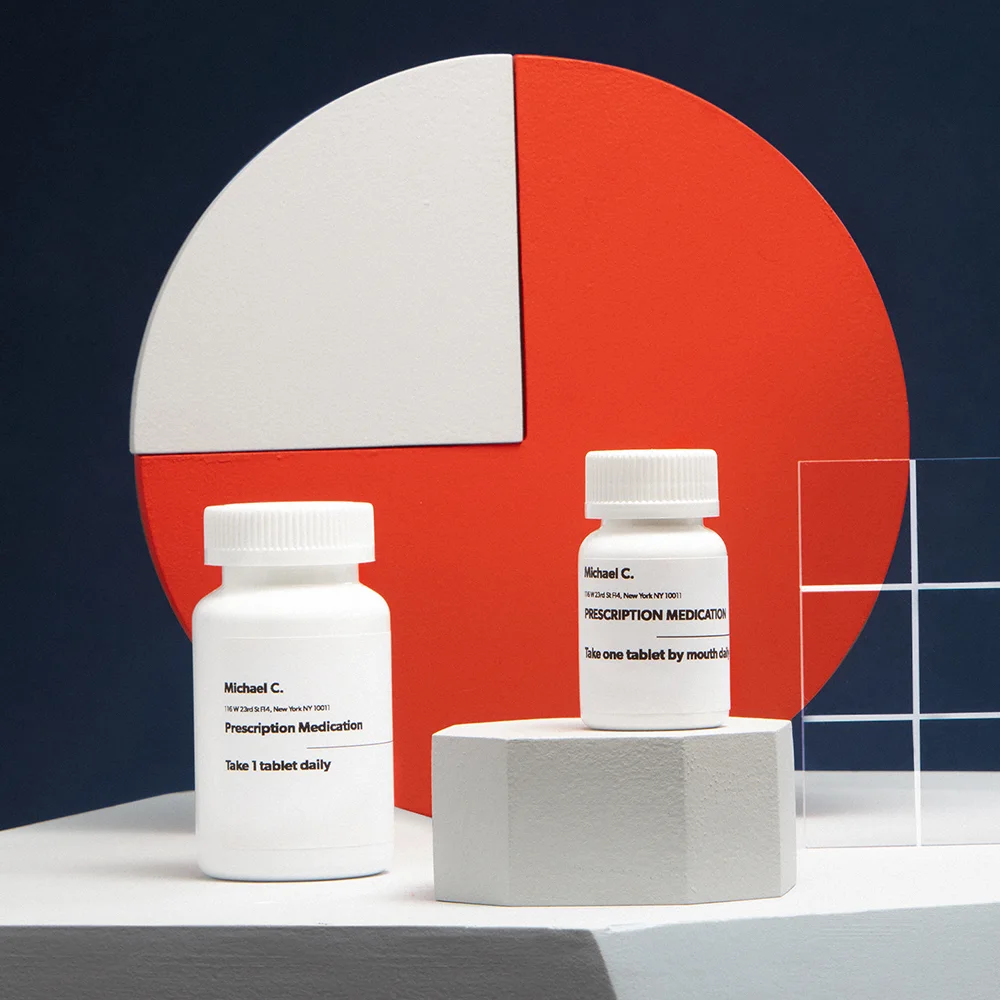Here's what we'll cover
Here's what we'll cover
Here's what we'll cover
How long a herpes outbreak lasts depends on a few factors: Is this your first outbreak or have you had an outbreak before? Also, the length of an outbreak can depend on whether you have oral herpes (cold sores) or genital herpes.
How long do herpes outbreaks last?
When you hear the word "herpes," the image that comes to mind is probably one of a sore at the edge of your lip that crops up every time you have a cold or a fever. But herpes is a little more complicated that that. Believe it or not, most people who have herpes have absolutely no idea. That's because, for the most part, the virus can be entirely asymptomatic. Usually the first infection when it comes to oral herpes happens sometime during childhood and not from sexual contact, and the symptoms are a lot more like a cold. In severe cases, the initial outbreak can involve a fever, swollen lymph nodes, swollen gums, and sores in your mouth, throat, or on your tongue. An initial herpes outbreak lasts around 14 days but can take up to six weeks for sores to fully heal (Saleh, 2020).
Later outbreaks aren't re-infection with the same virus. They're the same virus "waking up." Herpes viruses remain in your body and park themselves in your nerves. For the most part, your immune system works to keep them dormant. But if you catch a cold or another illness, or if you're experiencing stress and your immune system is "distracted," the virus can break free and cause a cold sore. Triggers vary and everyone is different, but on average, recurrent cold sores last from one to two weeks if you include the tingling or burning sensation that appears before the outbreak occurs. Recurrent outbreaks are shorter and last one to two weeks. One study found that discomfort from these outbreaks generally lasts about seven days without treatment (McCarthy, 2011).
While oral herpes is most commonly caused by herpes simplex virus 1 (HSV-1), genital herpes is more frequently cause by herpes simplex virus 2 (HSV-2).
Much like oral herpes, an initial genital herpes infection can last a lot longer than subsequent outbreaks and may be accompanied by fever and other whole-body symptoms and some symptoms may persist for weeks. Recurrent genital herpes outbreaks cause symptoms like itching, redness, and irritation in the genital area, but like oral herpes, genital herpes can also be asymptomatic (Mathew Jr., 2020). A genital herpes outbreak may begin with pain in the genitals and shooting pains or tingling in your legs, hips, or butt. These symptoms usually occur before you can see any blisters or lesions (CDC, 2021).
Unlike the first infection, later outbreaks tend to cause less discomfort and heal much faster. Sores from a recurrent genital herpes outbreak can heal in 3–7 days (ACOG, 2019). The number of outbreaks people experience with symptoms also decreases naturally over time (CDC, 2021).
Herpes outbreak treatment options
Even without treatment, most herpes outbreaks go away on their own. There are treatments available, however, which have been proven to shorten and even prevent future outbreaks. These antiviral medications work by preventing the virus from making copies of itself and spreading through your cells to cause an outbreak. If you suffer from oral herpes, a healthcare provider may recommend a topical cream or ointment that you should apply at the first sign of an outbreak. If you experience recurrent genital herpes outbreaks, you may be offered oral herpes treatments which are pills you take by mouth. Examples of antiviral drugs include acyclovir, famciclovir, and valacyclovir (brand name Valtrex). These are all standard options proven to help decrease the severity and length of outbreaks from herpes (CDC, 2015).
Prescription antiviral treatments are usually very effective at prevent future outbreaks, reducing the chance of experiencing an outbreak by 70–80%. Many people on antiviral therapy report experiencing no herpes symptoms at all (CDC, 2015). Using medication within the first 24 hours of symptoms can shorten outbreaks by several hours or days, ultimately reducing any discomfort in the long run (Albrecht, 2019).
Valacyclovir Important Safety Information: Read more about serious warnings and safety info.
Alternative treatment options
There is some evidence that low-level laser therapy may help shorten the length of a herpes outbreak. While it hasn't been shown to prevent outbreaks, it likely won't hurt. The procedure is typically performed by a dermatologist.
LLLT uses mild lasers to stimulate healing and reduce inflammation and pain. There are LLLT devices designed for at-home use, but they’re typically used to stimulate hair growth. There also aren’t any on the market at this time that have been shown to shorten herpes outbreaks.
One study found that using an LLLT device three minutes a day for two days was enough to reduce healing time by 2–3 days (Cauthen, 2018).
What triggers a herpes outbreak?
As we mentioned, following you first herpes infection, the virus lies dormant in your nerves. Your immune system usually keeps it at bay.
But your immune system can only deal with so much at once. That means if you have dormant herpes and your immune system needs to fend off another virus or bacteria, it may get “distracted,” allowing herpes to crop up. That’s why cold sores are called cold sores or fever blisters—they typically appear when you catch another bug (Campbell, 2012).
Different types of stress can also trigger outbreaks. Psychological stress, especially the stress caused by extreme emotional upset, can lead to an outbreak (Yan, 2020).
Things that cause physical stress can also contribute. Sunlight is a common trigger of oral herpes outbreaks, while friction from tight clothing or sex, and even hormone changes associated with menstruation, are common triggers of genital herpes outbreaks (Lautenschlager, 2020).
Speak to a healthcare provider about your options and which treatments might be effective for preventing or shortening your outbreaks.
DISCLAIMER
If you have any medical questions or concerns, please talk to your healthcare provider. The articles on Health Guide are underpinned by peer-reviewed research and information drawn from medical societies and governmental agencies. However, they are not a substitute for professional medical advice, diagnosis, or treatment.
References
Albrecht, M. A. (June 11, 2019). Patient education: Genital herpes (Beyond the Basics). Retrieved Feb. 26, 2021, from https://www.uptodate.com/contents/genital-herpes-beyond-the-basics/print
The American College of Obstetricians and Gynecologists (ACOG). (2019). Genital herpes. Retrieved Feb. 6, 2021, from https://www.acog.org/womens-health/faqs/genital-herpes
Campbell, J., Trgovcich, J., Kincaid, M., et al. (2012). Transient cd8-memory contraction: A potential contributor to latent cytomegalovirus reactivation. Journal of Leukocyte Biology, 92(5), 933-937. doi: 10.1189/jlb.1211635. Retrieved from https://jlb.onlinelibrary.wiley.com/doi/full/10.1189/jlb.1211635
Cauthen, A. (2018). Does low-level light therapy accelerate healing time of oral herpes simplex lesions? PCOM Physician Assistant Studies Student Scholarship. PA Systematic Reviews, 363. Retrieved from https://digitalcommons.pcom.edu/pa_systematic_reviews/363
Centers for Disease Control and Prevention (CDC). (June 5, 2015). 2015 STD Treatment Guidelines. Retrieved from https://www.cdc.gov/sti/index.html
Centers for Disease Control and Prevention (CDC). (January 19, 2021). STD facts - genital herpes (detailed version). Retrieved Feb. 6, 2021 on https://www.cdc.gov/sti/index.html
Crimi, S., Fiorillo, L., Bianchi, A., D’Amico, C., Amoroso, G., Gorassini, F., et al. (2019). Herpes virus, oral clinical signs and qol: Systematic review of recent data. Viruses, 11(5), 463. doi:10.3390/v11050463. Retrieved from https://www.mdpi.com/1999-4915/11/5/463/htm
Lautenschlager, S. (2020). Human Herpes Viruses. In: Plewig, G., French, L., Ruzicka, T., Kaufmann, R., Hertl, M. (eds). Braun-Falco´s Dermatology. Springer, Berlin, Heidelberg. doi:10.1007/978-3-662-58713-3_9-1. Retrieved from https://link.springer.com/referenceworkentry/10.1007%2F978-3-662-58713-3_9-1
Mathew Jr, J., Sapra, A. (November 20, 2020). Herpes Simplex Type 2. StatPearls Publishing. Treasure Island, FL. Retrieved from https://www.ncbi.nlm.nih.gov/books/NBK554427/
McCarthy, J. P., Browning, W. D., Teerlink, C., & Veit, G. (2011). Treatment of Herpes Labialis: Comparison of Two Otc drugs and Untreated Controls. Journal of Esthetic and Restorative Dentistry, 24(2), 103-109. doi:10.1111/j.1708-8240.2011.00417.x. Retrieved from https://onlinelibrary.wiley.com/doi/full/10.1111/j.1708-8240.2011.00417.x
Modi, S., Van, L., Gewirtzman, A., Mendoza, N., Bartlett, B., Tremaine, A., et al. (2008). Single-day treatment For Orolabial and Genital HERPES: A brief review OF pathogenesis and pharmacology. Therapeutics and Clinical Risk Management, 4(2), 409-417. doi:10.2147/tcrm.s1664. Retrieved from https://www.dovepress.com/single-day-treatment-for-orolabial-and-genital-herpes-a-brief-review-o-peer-reviewed-article-TCRM
National Institutes of Health (NIH). (November 15, 2019). Acyclovir: Medlineplus drug information. Retrieved Feb. 4, 2021, from https://medlineplus.gov/druginfo/meds/a681045.html
Patel, R., Alderson, S., Geretti, A., Nilsen, A., Foley, E., Lautenschlager, S., et al. (2011). European guideline for the management of genital herpes, 2010. International Journal of STD and AIDS, 22(1), 1-10. doi:10.1258/ijsa.2010.010278. Retrieved from https://pubmed.ncbi.nlm.nih.gov/21364059/
Saleh, D., Yarrarapu, S. N. S., & Sharma, S. (November 21, 2020). Herpes Simplex Type 1. StatPearls. Retrieved from https://www.ncbi.nlm.nih.gov/books/NBK482197/
Wald, A., & Johnston, C. (December 17, 2020). Treatment and prevention of herpes simplex virus type 1 in immunocompetent adolescents and adults. Retrieved Feb. 26, 2021 from https://www.uptodate.com/contents/treatment-and-prevention-of-herpes-simplex-virus-type-1-in-immunocompetent-adolescents-and-adults
Wilson M., & Wilson P. J. K. (2021) Genital Herpes. In: Close Encounters of the Microbial Kind. Springer, Cham. doi: 10.1007/978-3-030-56978-5_29. Retrieved from https://link.springer.com/chapter/10.1007/978-3-030-56978-5_29
Yan, C., Luo, Z., Li, W., Li, X., Dallmann, R., Kurihara, H., et al. (2020). Disturbed Yin–Yang balance: Stress increases the susceptibility to primary and recurrent infections of herpes simplex virus type 1. Acta Pharmaceutica Sinica B, 10 (3), 383-398. doi:10.1016/j.apsb.2019.06.005. Retrieved from https://www.sciencedirect.com/science/article/pii/S2211383519302692










